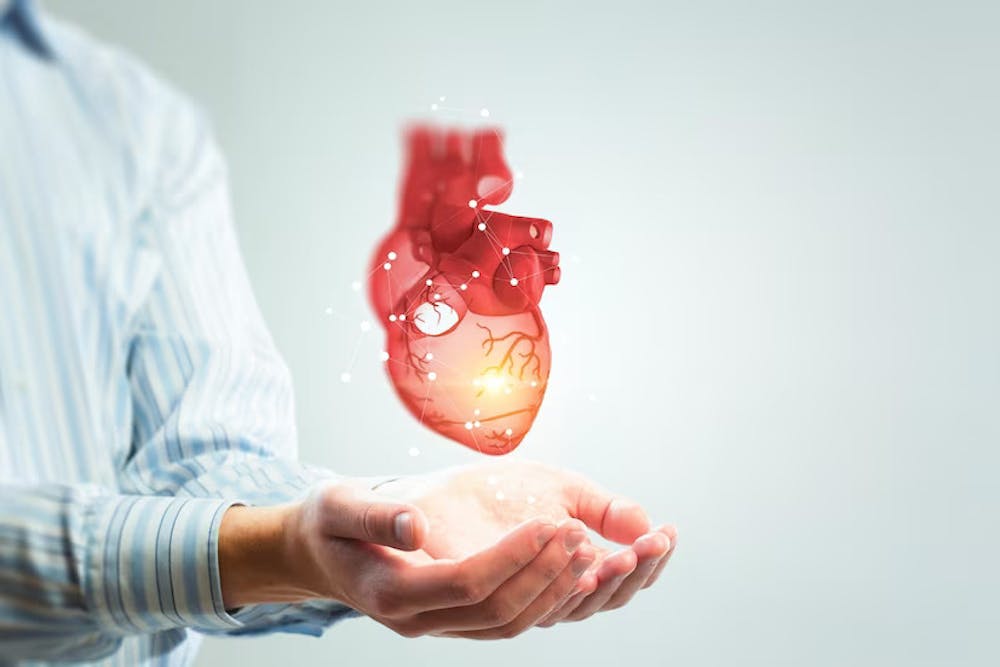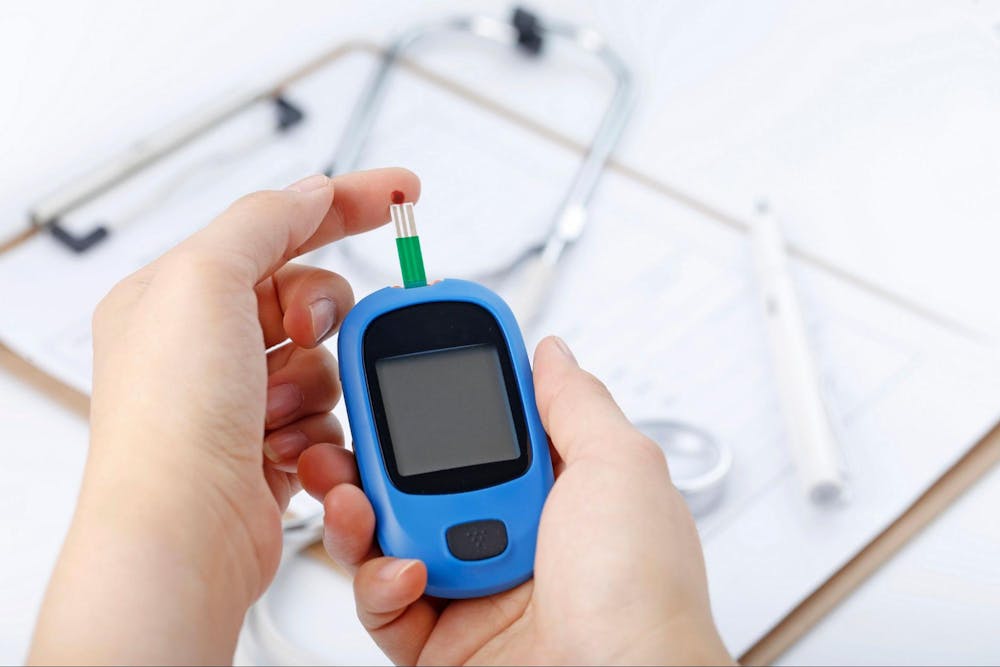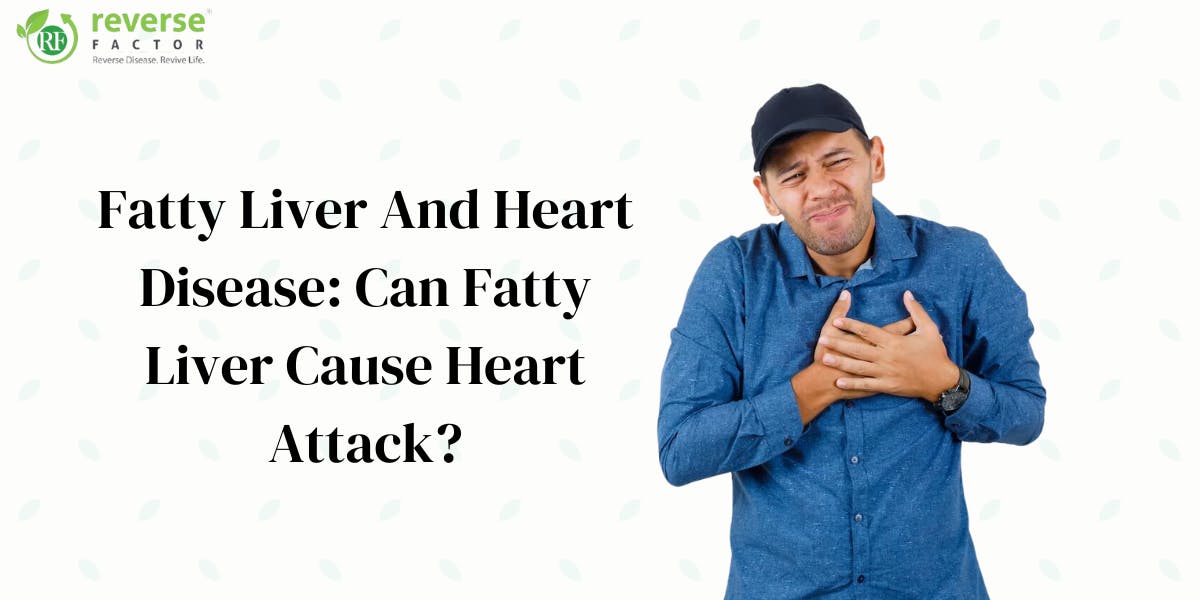We are constantly amazed by the complex connection between various organs and systems in the field of health and wellness. One such intriguing connection is between two common diseases: fatty liver and heart disease.
In recent years we have seen a sudden rise in cases of fatty liver disease, a disorder characterized by the buildup of fat in the liver. At the same time, heart disease continues to be the leading cause of mortality worldwide. But what if these two factors, which at first glance seem unrelated, are actually linked in unexpected ways?

A 2019 study suggest that there is a strong relationship between heart and liver condition. So, today we’re going to conduct an insightful investigation on the complex connection between fatty liver and heart disease. Continue reading to grow your knowledge of these two serious health concerns and learn about the best ways to control them. Get ready to know how to take control of your liver health and how to stop and reverse heart disease through this informative guide.
Recommended: How Does Stress Affect The Liver: A Comprehensive Guide
Relationship Between Fatty Liver And Cardiovascular Disease
When too much fat builds up in the liver, it results in fatty liver disease. If an ultrasound test shows a bright and swollen liver it means your liver has excess fat deposition. This condition has been referred to as Non-alcoholic fatty liver (NAFLD). This disorder has been identified as a risk factor for heart disease and other cardiovascular diseases. The connection between fatty liver and heart disease arises from obesity, diabetes, and high blood pressure.
Studies have shown that fatty liver disease can encourage inflammation and oxidative stress. It can release certain chemicals that can harm blood vessels, resulting in the progression of heart disease. That’s why it is crucial to address these conditions as early as possible. You can join fatty liver disease reversal program to improve your liver health with a healthy diet and exercise.
Must Read: The Link between Fatty Liver and Obesity- Reverse Factor
What Causes Fatty Liver Disease?
An excessive buildup of fat in the liver cells is the main contributor to fatty liver disease. There are numerous causes for this fat accumulation. A diet rich in calories, processed carbs, and saturated fats are among the key contributing factors. Another important factor in the development of NAFLD is insulin resistance. It is a disease where the body's cells do not react to insulin as they should. Fatty liver disease risk can also be further increased by type 2 diabetes and excessive cholesterol. A good fatty liver reversal diet plan including plants and vegetables can help you reduce the progression of obesity and NAFLD.
See More: Understanding The Gut-Brain Connection - Reverse Factor
Types Of Fatty Liver Disease
Alcoholic Fatty Liver Disease –
It is caused by excessive alcohol consumption.
Nonalcoholic Fatty Liver Disease –
It is not related to alcohol consumption and is often associated with obesity, diabetes, and metabolic syndrome.
Signs Of Fatty Liver Problems
Individuals may not always experience any noticeable symptoms, and it can vary from person to person. The following are some common fatty liver disease symptoms:
- Feeling tired all the time
- Abdominal Pain
- Enlarged Liver
- Nausea
- Jaundice
- Weight loss or sudden weight gain:
- Loss of appetite
- Swelling in the legs and ankle
- Dark urine
Fatty Liver Effect On Heart
Fatty liver is dangerous for heart health. Non-alcoholic steatohepatitis (NASH) is a disorder characterized by inflammation and liver cell destruction. It can result from the buildup of fat in the liver. This inflammation may cause the release of toxic compounds into the bloodstream. It may lead to a condition of systemic inflammation that can harm your heart and blood vessels.
Fatty liver disease often coexists with other metabolic conditions. Conditions like obesity and insulin resistance are recognized as risk factors for heart disease. These risk factors may be made worse by fatty liver disease. It raises the possibility of developing heart disease, coronary artery disease, and heart attacks.
Therefore, managing fatty liver disease can reduce the chances of heart failure and liver failure. That’s why we have designed the most trusted heart disease reversal program and fatty liver disease treatments. It will help you improve your health and well-being.

Managing And Preventing Fatty Liver And Heart Disease
Here are some of the best ways to reduce the risk of liver disease causing heart failure –
1. Healthy Diet
You should adopt a healthy diet that contains plenty of fresh fruits and vegetables, whole grains, and healthy fats. Make sure to avoid processed foods, sugary drinks, saturated fats, and sodium.

2. Weight Management
Maintain a healthy weight by controlling your portions, and doing regular exercises. Losing excess weight can reduce liver fat and strengthen your heart.

3. Regular Exercise
Engaging in physical activity such as walking, jogging, swimming, or cycling can improve your liver disease and heart rate. Set a weekly goal of 75 minutes of strenuous exercise or 150 minutes of moderate exercise to stay active and healthy.

4. Avoid Excessive Alcohol Consumption
To reduce the risk of fatty liver disease and heart problems you must completely avoid alcohol consumption.

5. Control Diabetes and Insulin Resistance
You should consume healthy food, and get enough sleep to control diabetes and insulin resistance. Both of which can lead to the development of fatty liver and heart disease.

6. Manage Cholesterol and Blood Pressure
A combination of a healthy diet, routine exercise, and stress management can help you manage your cholesterol level and keep your blood pressure at a healthy range.
7. Quit Smoking
Smoking destroys blood vessels and raises the risk of heart disease and liver issues. Thus, giving up smoking is essential for maintaining both heart and liver health.

8. Stress Management
Practice stress-reduction strategies like mindfulness, meditation, and deep breathing exercises. Also participating in activities you enjoy for managing stress, as chronic stress can also affect the health of your heart and liver.

9. Regular Check-ups
Make appointments with your doctor on a regular basis to check on your heart health and liver function. Regular observation can help in identifying and managing any possible problems early on.
Final Thoughts -
The intricate relationship between fatty liver and heart disease highlights the impact of one condition on the other. Fatty liver disease can contribute to the development of heart problems through shared risk factors. A healthy diet, maintaining a healthy weight, limiting alcohol consumption, and managing stress are the best ways to reduce heart and fatty liver disease symptoms. Make sure to get professional advice and support to effectively address these conditions.
Frequently Asked Questions-
Do Fatty Liver Cause Heart Problems?
Yes, fatty liver can play a role in the development of heart issues as it is linked to a higher risk of cardiovascular diseases, such as heart attack.
Is There A Link Between Heart And Liver?
Yes, there is a connection between the heart and the liver. They are both vital organs in the body and their shared risk factors can affect each other's health and function.
What Are Non-Alcoholic Fatty Liver Disease Symptoms?
An enlarged liver, fatigue, and abdominal discomfort are a few of the symptoms of non-alcoholic fatty liver disease (NAFLD). However, the signs of NAFLD may not always be apparent in those who have it.
Can Fatty Liver Cause Heart Attack?
A heart attack may not be directly caused by fatty liver. It is linked to a higher risk of heart problems due to shared risk factors and systemic inflammation.
What Is The Life Expectancy Of A Person With A Fatty Liver Disease?
People suffering from fatty liver disease can live for many years with correct lifestyle choices.
Can Heart Problems Cause Liver Problems?
Conditions like congestive heart failure can cause liver congestion and impaired liver function. It occurs due to reduced blood flow and increased pressure in the liver's blood vessels.
How Can I Prevent Both Fatty Liver And Heart Disease?
You can prevent both conditions by living a healthy lifestyle. It includes a balanced diet, frequent exercise, maintaining a healthy weight, and limiting alcohol use.
Can Losing Weight Help Improve Fatty Liver And Heart Health?
Yes, fatty liver disease and heart health can both be improved by losing weight through a nutritious diet and frequent exercise.




